Vietnamese
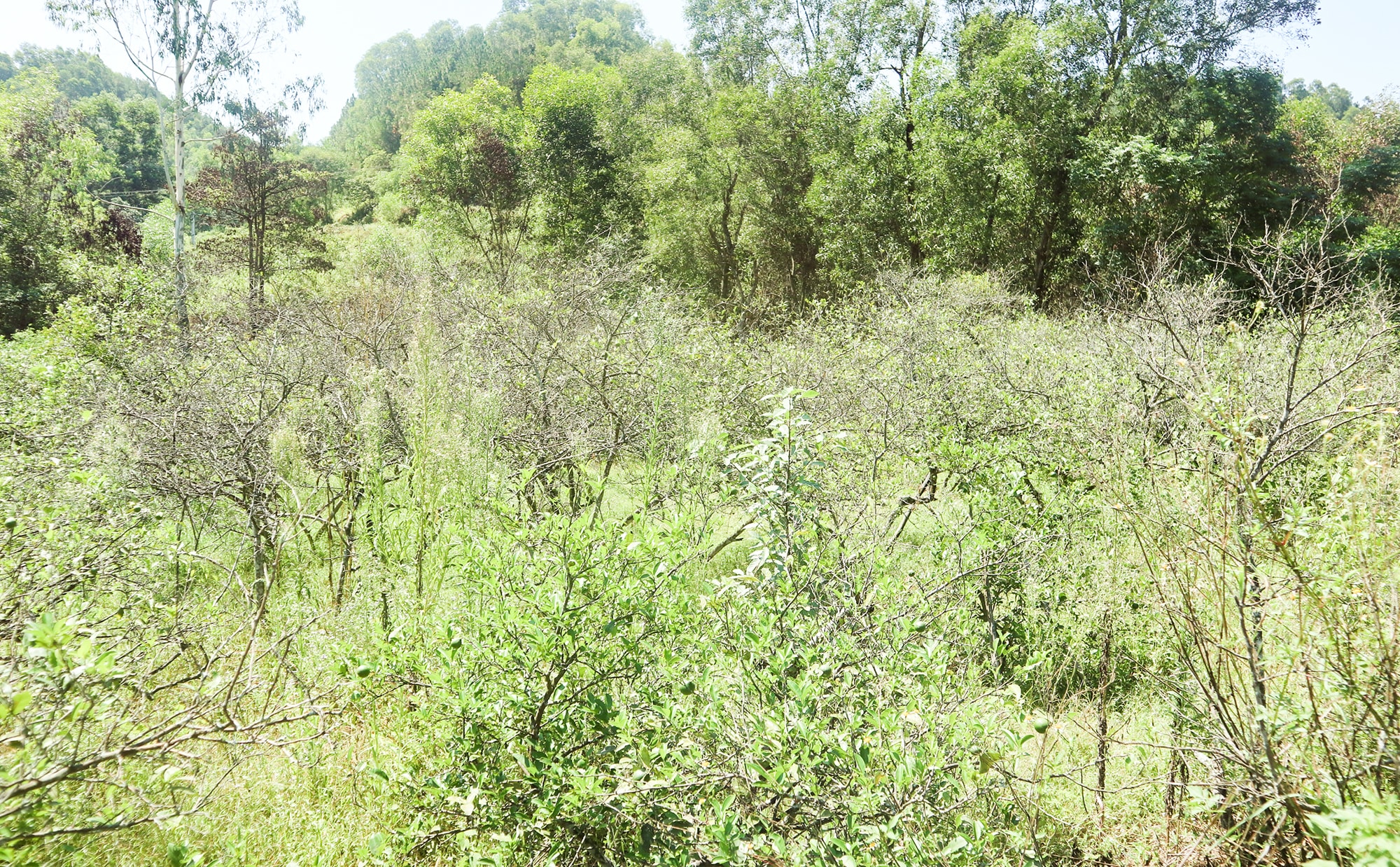
This year, 70 years old, the lemon garden of veteran Vo Van Quang (Hamlet 5, Nam Kim Commune) is almost 45 years old. The garden of 200 lemon trees is the main livelihood of the whole family, raising children to adulthood and now the main source of income for the two elderly people who do not have pensions.
In a good harvest year, each lemon tree produces 60-80 kg of fruit, the off-season makes up for the off-season, with prices ranging from approximately 5,000 VND - 10,000 VND/kg, 200 lemon trees also bring in an income of about 60-80 million VND.
However, for the past 3 years, his family's 200 lemon trees have gradually degenerated, productivity has been low, crops have continuously failed, and many lemon trees have withered and died.
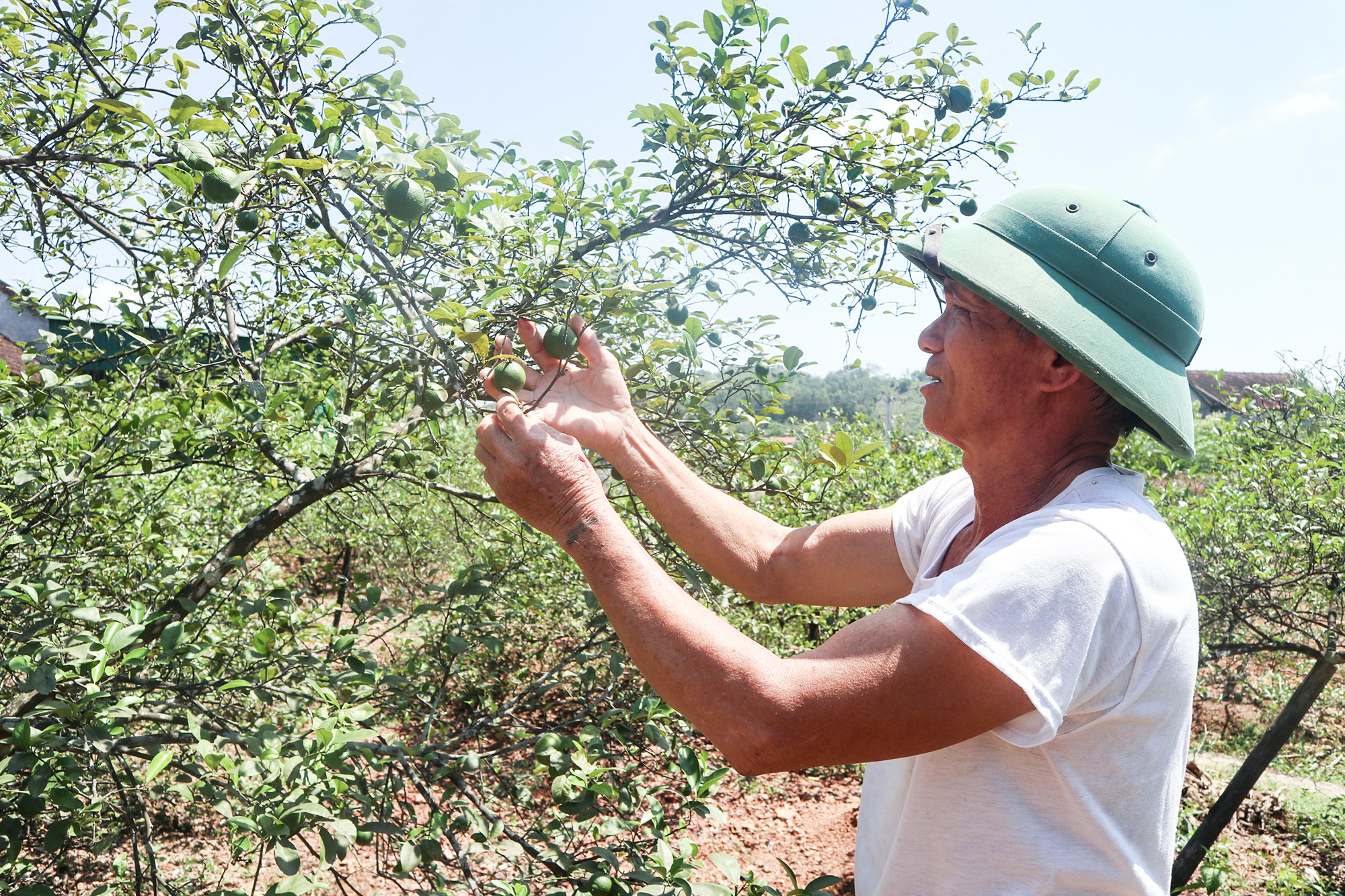
He had to cut down the rotten and dead trees, leaving only 50 trees that still bore fruit. “It’s a pity to leave them, but it’s not worth it. This is the peak season, but there are no lemons to pick and sell. I searched all over the garden and only got a dozen kilos of lemons,” said Mr. Quang.
In the same situation, Mr. Pham Minh Son's family has planted 150 lemon trees since 1978 until now. After many times of intercropping and replacing diseased lemon trees, by the end of 2022, he had to cut them all down. "The lemon trees have also reached the end of their life cycle, the varieties have degenerated so the yield is low. Therefore, the family had to cut them down, renovate the garden and plant new trees," said Mr. Son.
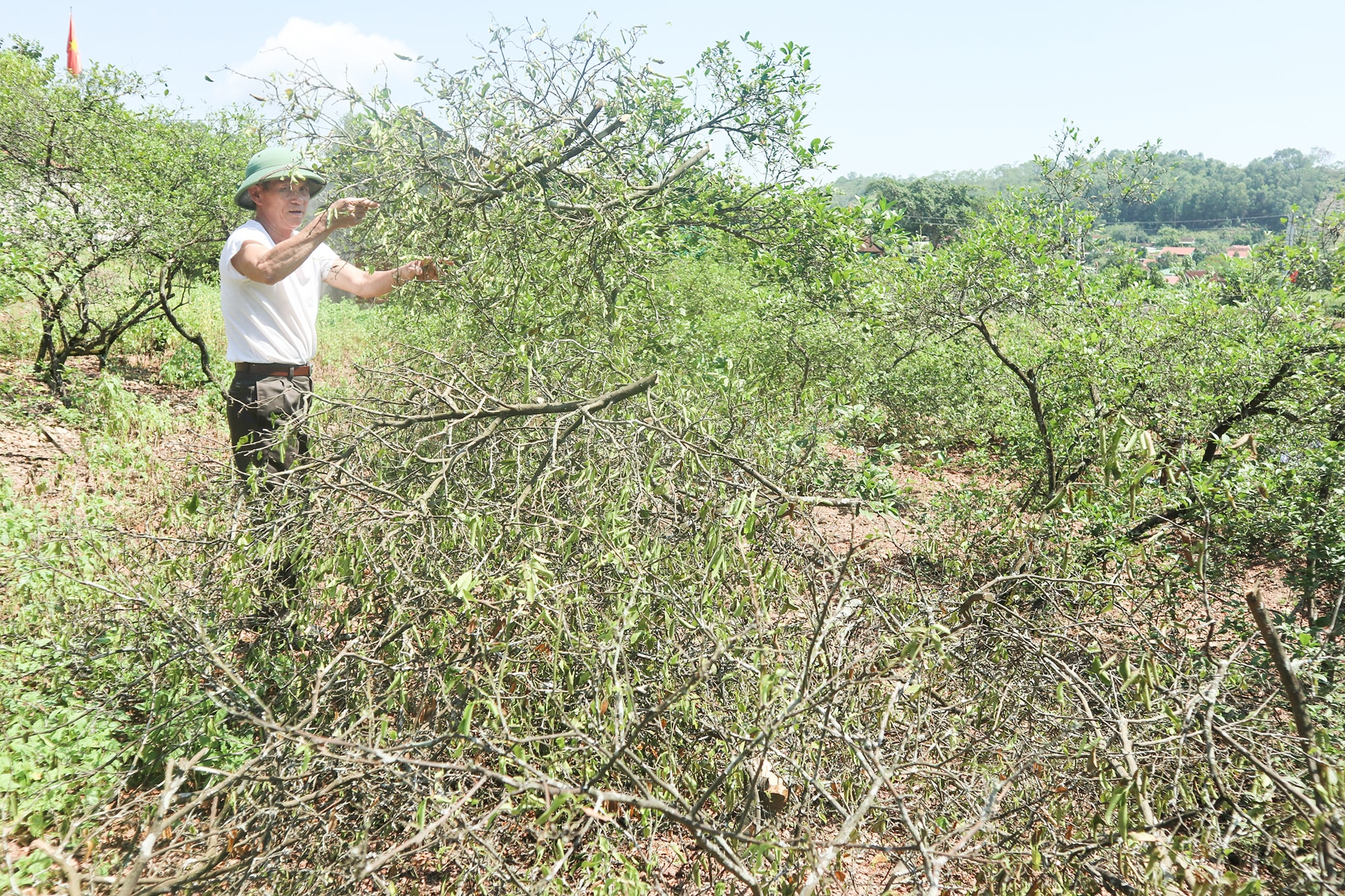
If 3 years ago, Nam Kim's lemon area was up to 400-500ha, now it is only 240ha and in fact only about 100ha of lemon still produce fruit. "Most of the original lemon trees have been cut down and are in the process of developing new varieties, it will take 2 more years to harvest. The worrying thing is that now, due to land degradation after many years of growing trees, new plantings are being done but the growth ability of lemon trees is not as strong as before.
Furthermore, the entire newly planted area must now buy grafted lemon varieties from other places, and the native lemon trees here cannot be grafted to replace them," said Mr. Dang Van Tan, an agricultural official of Nam Kim commune.
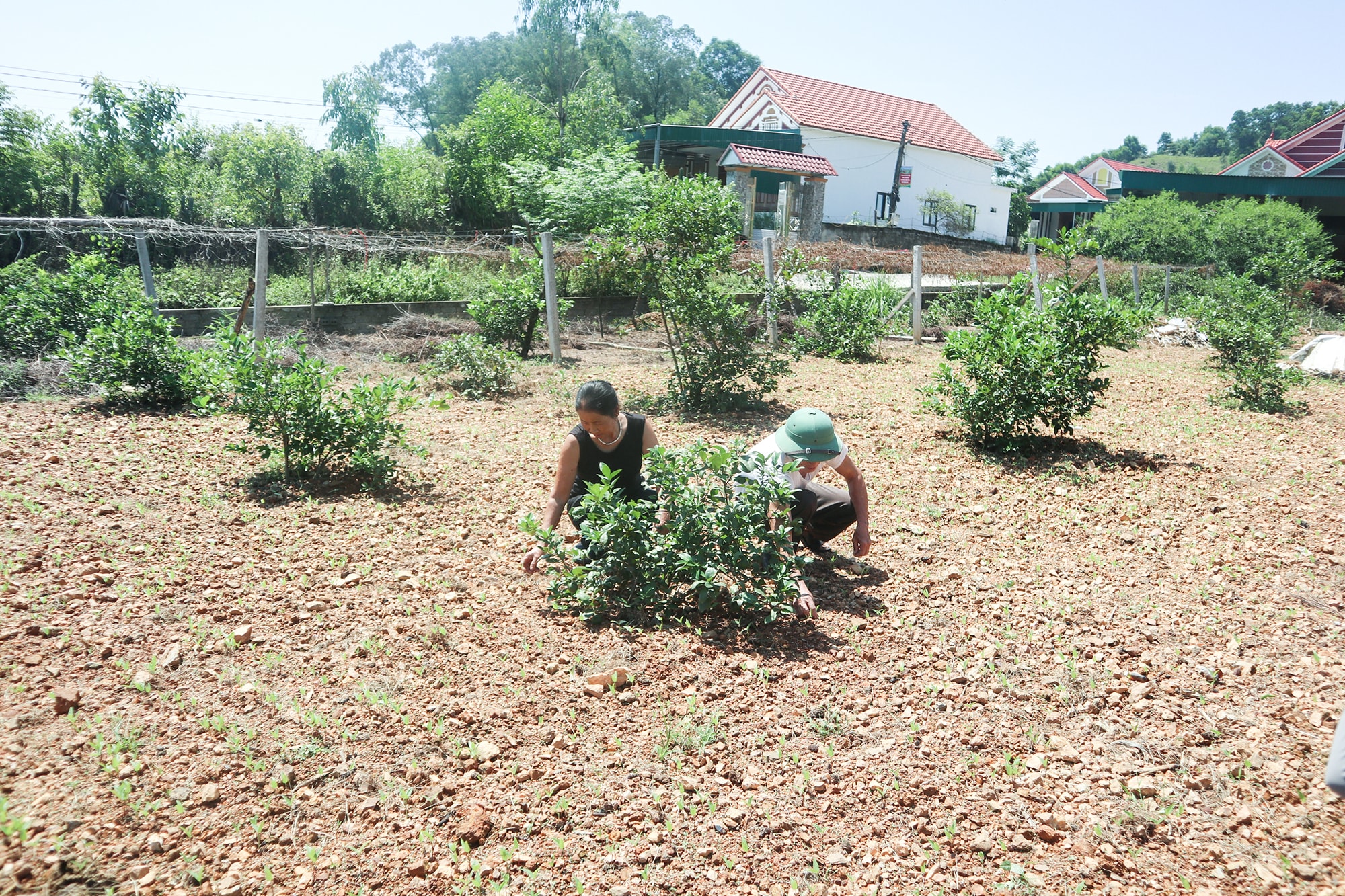
Many households, after cutting down their lemon trees, are experimenting with new crops. Many hill gardens and lemon trees have been completely cut down, replaced by gardens of oranges, grapefruits, longans, and passionflowers that are growing green. However, according to long-time lemon growers here, "on Nam Kim hill land, there is no tree that can replace lemon trees. However, lemon trees are still easy to care for, require little investment, and provide the most stable income."
The concern of the people of Nam Kim is how to preserve and restore the native lemon variety - a thick-skinned lemon with lots of juice, sour and fragrant. Because, in addition to its economic value, the lemon tree is also a crop that has been closely associated with the people here for more than half a century, carrying within it the soul of the land, the soul of the village, and the culture of the 5 Nam region.
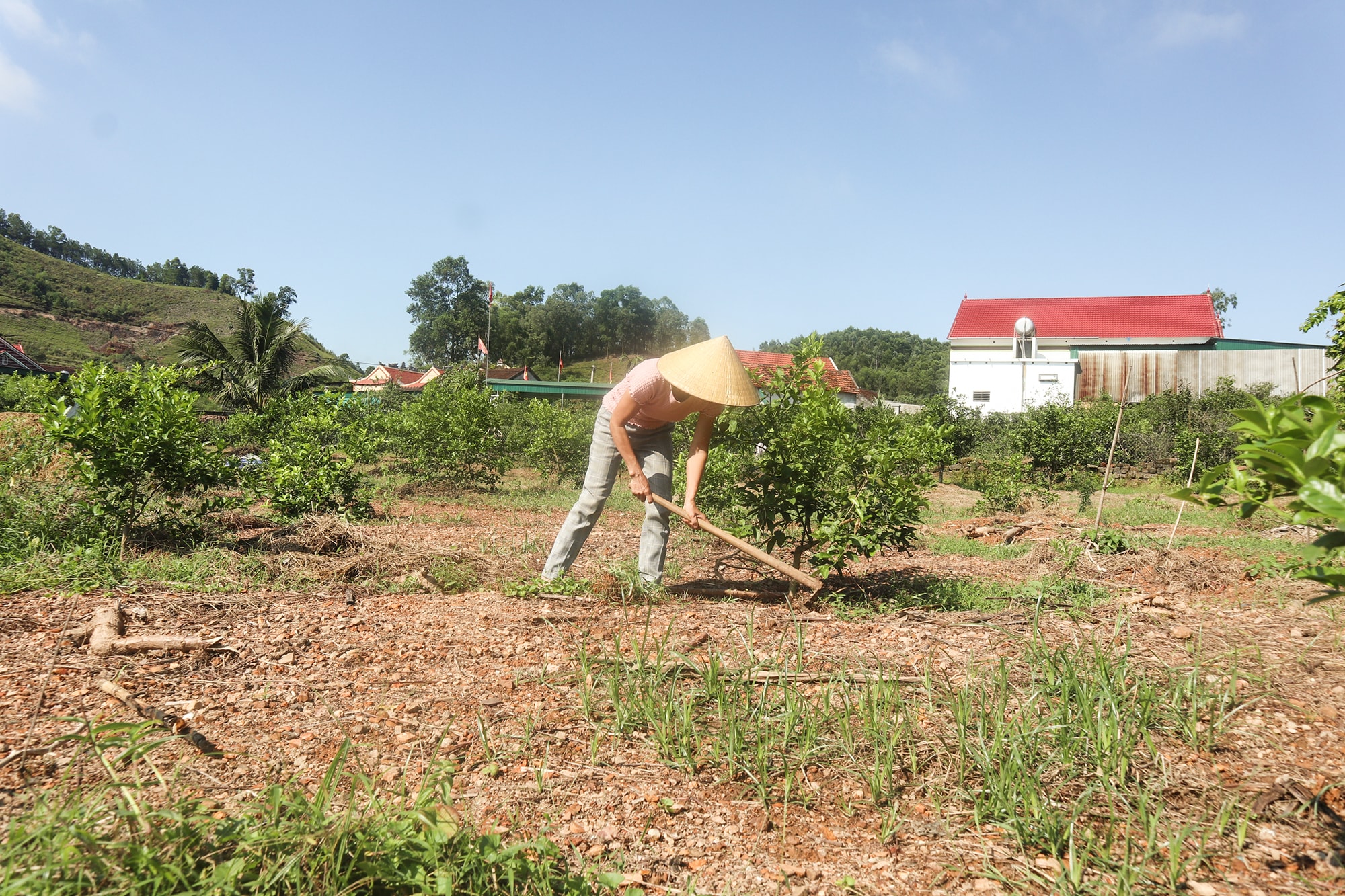
Mr. Vo Van Quang said: "After cutting down the diseased and dead lemon trees, I treated the soil, hired a truck to transport hill soil to build up the garden, creating a "new coat" to improve the situation of the lemon trees that were "bored of the soil".
At the same time, invest in manure, spread sesame and beans in a thick layer on the ground to keep the soil moist, help the soil loose, and minimize the use of inorganic fertilizers and chemicals. The remaining 50 lemon trees in the garden have also reached the end of their life cycle, but I still keep them, hoping that all levels and sectors will research and find a way to graft and preserve the native lemon variety.